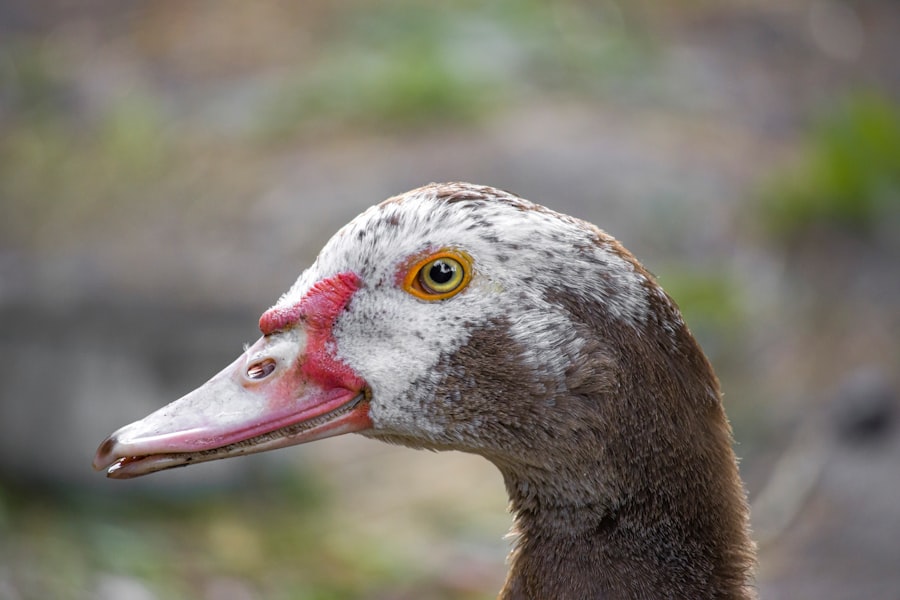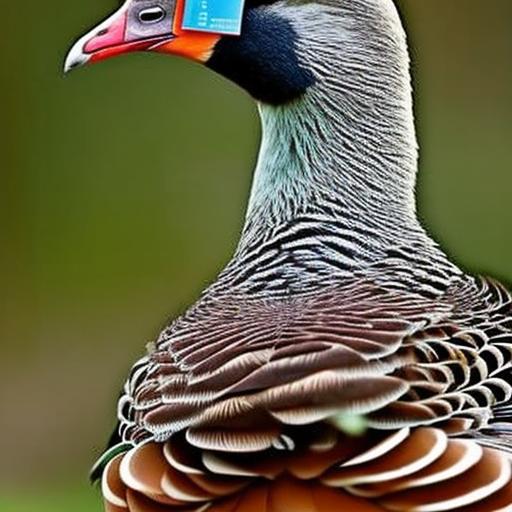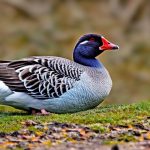Geese have been domesticated animals for thousands of years, with evidence of their domestication dating back to ancient Egypt and Rome. They were originally kept for their meat, feathers, and eggs, but over time, they have also become popular as pets. Geese make great pets for a variety of reasons. They are intelligent, social animals that can form strong bonds with their owners. They are also low maintenance pets that require minimal grooming and can be easily trained. In addition, geese are excellent for pest control and can help keep your yard free of unwanted insects and weeds.
Key Takeaways
- Keeping geese as pets can be a rewarding experience for those who have the space and time to care for them.
- Benefits of keeping geese as pets include their ability to act as natural lawn mowers, their entertaining personalities, and their ability to produce eggs and meat.
- When choosing a breed of geese for your home, consider factors such as temperament, size, and egg-laying ability.
- Proper housing and fencing is important for keeping geese safe and healthy, and providing them with access to water is essential.
- Geese require regular veterinary care and attention to maintain their health, and training and socializing them can help manage their behavior and temperament.
Benefits of Keeping Geese as Pets
One of the main benefits of keeping geese as pets is that they are low maintenance animals. They require minimal grooming and do not need to be bathed or brushed like dogs or cats. Geese are also relatively self-sufficient when it comes to feeding, as they can graze on grass and other vegetation in your yard. This makes them a cost-effective pet to keep.
Another benefit of keeping geese as pets is their excellent pest control abilities. Geese are natural grazers and will happily eat insects, weeds, and other unwanted plants in your yard. This can help keep your yard free of pests and reduce the need for chemical pesticides.
Geese are also great for egg-laying and meat production. Many people choose to keep geese for their eggs, which are larger than chicken eggs and have a rich flavor. Geese can also be raised for meat, with their meat being lean and flavorful.
Lastly, geese make fun and entertaining pets. They are curious animals that enjoy exploring their surroundings and interacting with their owners. They can be trained to perform tricks and can even be taught to walk on a leash.
Choosing the Right Breed of Geese for Your Home
There are several different breeds of geese to choose from, each with its own characteristics and traits. Some popular breeds include Toulouse, Embden, and Chinese geese.
Toulouse geese are large, heavy birds that are known for their calm and docile nature. They are good egg layers and can also be raised for meat. Toulouse geese are a popular choice for families with children, as they are gentle and tolerant.
Embden geese are also large birds, but they are known for their white feathers and striking appearance. They are good egg layers and can be raised for meat as well. Embden geese are known for their friendly and sociable nature.
Chinese geese are smaller than Toulouse and Embden geese, but they are still good egg layers. They have a distinctive appearance, with a knob on their forehead and a long neck. Chinese geese are known for their alert and vocal nature.
When choosing a breed of geese, it is important to consider factors such as the size of your yard, your climate, and your personal preferences. Some breeds may be better suited to certain climates or living conditions than others.
Housing and Fencing for Geese
Geese require adequate housing to keep them safe and comfortable. There are several different types of housing options to choose from, including sheds, coops, and pens.
Sheds provide a large, enclosed space for your geese to live in. They can be made from wood or metal and should have a solid floor to protect your geese from predators. Sheds should also have proper ventilation to prevent the buildup of moisture and ammonia.
Coops are smaller than sheds and are typically used for raising goslings or keeping geese temporarily. They can be made from wood or wire mesh and should have a secure door to keep predators out.
Pens are outdoor enclosures that allow your geese to graze while still keeping them safe from predators. Pens should be made from sturdy fencing material, such as chain link or welded wire, and should have a secure gate.
In addition to housing, geese also require fencing to keep them contained. Geese are strong birds that can fly short distances and are capable of escaping if not properly contained. Fencing should be at least 4 feet high and should be buried at least 6 inches into the ground to prevent geese from digging under it.
Feeding and Watering Your Geese
Geese have specific dietary needs that must be met in order for them to stay healthy. They require a balanced diet that includes a mix of grains, greens, and protein.
A good commercial goose feed can provide the necessary nutrients for your geese. Look for a feed that is specifically formulated for geese and contains a mix of grains, such as corn, wheat, and barley. You can also supplement their diet with fresh greens, such as lettuce, spinach, and kale.
In addition to food, geese also require clean water for drinking and bathing. Geese need access to fresh water at all times, so it is important to provide them with a clean water source. This can be a shallow dish or a small pond that is regularly cleaned and refilled.
Health and Veterinary Care for Geese

Like any pet, geese can experience health issues that require veterinary care. It is important to be aware of common health issues in geese and know how to prevent and treat them.
Some common health issues in geese include respiratory infections, parasites, and foot problems. Respiratory infections can be caused by bacteria or viruses and can cause symptoms such as coughing, sneezing, and difficulty breathing. Parasites, such as mites or worms, can cause itching, feather loss, and weight loss. Foot problems can occur if geese are kept on hard surfaces or if their feet are not properly cared for.
To prevent health issues in geese, it is important to provide them with a clean and comfortable living environment. This includes regular cleaning of their housing and providing them with fresh water and food. It is also important to monitor your geese for any signs of illness and seek veterinary care if necessary.
Finding a veterinarian that specializes in avian care can be challenging, as not all veterinarians have experience with geese. It is important to do your research and find a veterinarian that has experience with geese or other waterfowl. They will be able to provide you with the necessary vaccinations, treatments, and advice for keeping your geese healthy.
Training and Socializing Your Geese
Geese are intelligent animals that can be trained to perform tricks and follow commands. Training your geese can be a fun and rewarding experience that helps build a bond between you and your pets.
To train your geese, start by establishing yourself as the leader. Geese are social animals that naturally follow a leader, so it is important to establish yourself as the dominant figure. This can be done through consistent training, positive reinforcement, and setting clear boundaries.
Once you have established yourself as the leader, you can begin teaching your geese basic commands, such as “sit” or “stay.” Use treats or praise as rewards for good behavior and be patient with your geese as they learn.
Socializing your geese is also important for their overall well-being. Geese are social animals that thrive on companionship and interaction. Spend time with your geese each day, talking to them, petting them, and allowing them to interact with you. This will help build a bond between you and your geese and make them more comfortable around you.
Managing Geese Behavior and Temperament
Understanding geese behavior is key to managing their behavior and temperament. Geese are naturally protective animals that can become aggressive if they feel threatened or if they perceive you as a threat to their territory.
To manage aggressive behavior in geese, it is important to establish yourself as the leader and set clear boundaries. Geese are more likely to be aggressive if they feel that their territory is being invaded or if they feel threatened. Avoid sudden movements or loud noises around your geese and give them plenty of space to feel safe.
If your geese do become aggressive, it is important to handle them safely. Geese have strong beaks and can deliver painful bites. Use a long stick or broom to keep a safe distance from your geese and avoid reaching out to touch them if they are displaying aggressive behavior.
Geese Breeding and Egg-Laying
Geese have a breeding season that typically occurs in the spring. During this time, female geese will lay eggs and incubate them until they hatch.
To encourage egg-laying in your geese, provide them with a comfortable nesting area. This can be a small box filled with straw or hay, or a nesting box specifically designed for geese. Make sure the nesting area is clean and secure, and provide your geese with privacy during the egg-laying process.
Once the eggs are laid, you can choose to incubate them yourself or allow the female goose to incubate them. Incubating goose eggs requires a specific temperature and humidity level, so it is important to do your research and follow proper incubation techniques.
Legal Considerations for Keeping Geese as Pets
Before getting geese as pets, it is important to be aware of any local laws or regulations regarding their ownership. Some areas may have restrictions on keeping geese, such as limits on the number of geese you can have or specific requirements for housing and fencing.
In addition to local laws, there may also be permits or licenses required for keeping geese. These permits or licenses may be obtained from your local animal control or agricultural department. It is important to research and comply with any legal requirements to ensure that you are a responsible goose owner.
Keeping geese as pets can be a rewarding and enjoyable experience. They are low maintenance pets that provide a variety of benefits, including pest control, egg-laying, and meat production. By choosing the right breed, providing proper housing and fencing, and giving them a balanced diet, you can ensure that your geese are happy and healthy. With proper training and socialization, you can build a strong bond with your geese and enjoy their entertaining and curious nature. Just be sure to research and comply with any legal requirements in your area to be a responsible goose owner.
If you’re considering keeping geese as pets, you may also be interested in an article on Poultry Wizard about the compatibility of guinea fowl and chickens. This informative piece explores whether guinea fowl can live harmoniously with chickens, providing valuable insights for those looking to diversify their poultry flock. To learn more about this topic, check out the article here. Additionally, if you’re looking for ways to keep your chicken coop warm during colder months, Poultry Wizard offers a helpful guide on choosing the right heater. Find out more about this essential accessory by clicking here. Lastly, if you’re wondering how many chickens you need to sustain a family of four, Poultry Wizard has got you covered with their article on the ideal chicken count. Discover the answer and gain valuable insights by visiting this link.
FAQs
What are geese?
Geese are waterfowl birds that belong to the family Anatidae. They are known for their long necks, webbed feet, and distinctive honking sound.
Can geese be kept as pets?
Yes, geese can be kept as pets. They are social animals and can form strong bonds with their owners.
What are the benefits of keeping geese as pets?
Keeping geese as pets can provide companionship, entertainment, and even pest control. They are also known for their ability to produce eggs and meat.
What are the challenges of keeping geese as pets?
Geese can be messy and require a lot of space to roam. They also require a specialized diet and can be noisy.
What kind of housing do geese need?
Geese need a secure and spacious enclosure that provides protection from predators and the elements. They also need access to water for swimming and bathing.
What do geese eat?
Geese are herbivores and primarily eat grass, weeds, and other vegetation. They also require access to clean water and may benefit from supplemental feed.
Do geese require veterinary care?
Yes, geese require regular veterinary care to maintain their health. This may include vaccinations, parasite control, and routine check-ups.
Can geese be trained?
Yes, geese can be trained using positive reinforcement techniques. They can learn to follow commands and even perform tricks.
Meet Walter, the feathered-friend fanatic of Florida! Nestled in the sunshine state, Walter struts through life with his feathered companions, clucking his way to happiness. With a coop that’s fancier than a five-star hotel, he’s the Don Juan of the chicken world. When he’s not teaching his hens to do the cha-cha, you’ll find him in a heated debate with his prized rooster, Sir Clucks-a-Lot. Walter’s poultry passion is no yolk; he’s the sunny-side-up guy you never knew you needed in your flock of friends!







